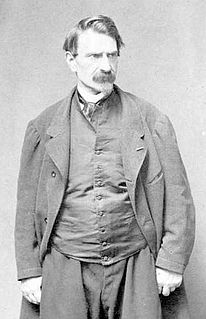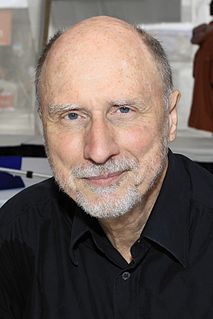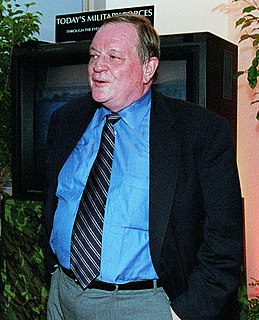A Quote by Francois Delsarte
The object of art is to crystallize emotion into thought, and then fix it in form.
Related Quotes
Natural writers will often try to force themselves into a form - novel, story, screenplay, or poem - that is not necessarily the appropriate form for the way they see the world... if, in fact, they are writing from the artist's impulse, which is a deep, inchoate vision of some sort of order behind the apparent chaos of life on planet earth, they'll be driven then to express that vision in the creation of the object - the art object.
The only way of expressing emotion in the form of art is by finding an "objective correlative"; in other words, a set of objects, a situation, a chain of events which shall be the formula for that particular emotion; such that when the external facts, which must terminate in sensory experience, are given, the emotion is immediately evoked.
Marcel Duchamp, one of this century's pioneers, moved his work through the retinal boundaries which had been established with Impressionism into a field where language, thought and vision act upon one another. There it changed form through a complex interplay of new mental and physical materials, heralding many of the technical, mental and visual details to be found in more recent art... He declared that he wanted to kill art ("for myself") but his persistent attempts to destroy frames of reference altered our thinking, established new units of thought, a "new thought for that object."
In architecture, to do anything beyond object form is often treated as something extra-disciplinary - something outside the discipline that has nothing to do with art. So I'm making it clear that this is an artistic choice. It's not everyone's artistic choice. Some people should choose only to make object form because that's what gives them pleasure. But there are people for whom aesthetic pleasure comes from doing something else, and why would you deny that choice? It's another autonomous choice.
What you want will pull like a magnet. Here's the other part. What for? Purpose is stronger than object. It's the 'What for?' that's even more powerful than the object. And the more you can describe in detail to stir the emotion and the intellect and the spirit and the soul, then the more powerful the 'what for' is.




































